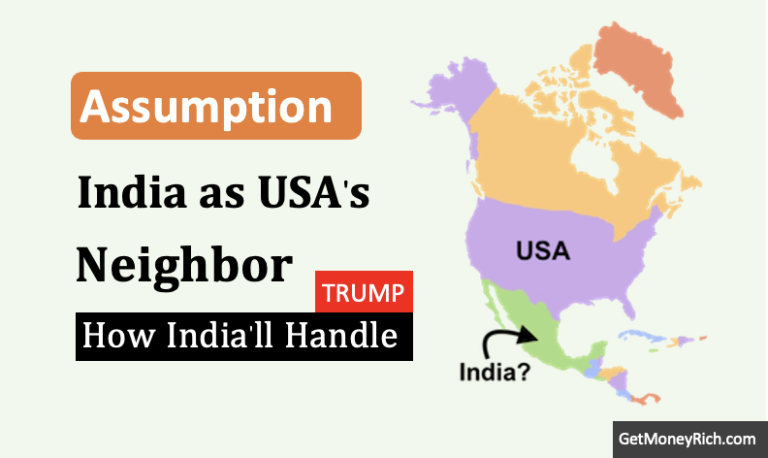Let’s face it, the idea of eliminating taxes on Social Security benefits sounds fantastic, right? After a lifetime of paying into the system, the thought of the government taking a chunk of it back in retirement just feels a little unfair. And you’re not alone in thinking that. Politicians on both sides of the aisle have floated the idea. Even former President Trump made it a campaign promise.
Donald Trump has proposed eliminating federal income taxes on Social Security benefits. The aim is to increase retirees’ monthly income. Though he hasn’t detailed how to offset the revenue loss this would cause.
Rep. Thomas Massie (R-KY) recently reintroduced a bill to do just that. Organizations like The Senior Citizens League are cheering it on. They estimate that the average senior household could save around $3,000 a year if these taxes were eliminated. Think of the possibilities: extra travel, home improvements, or simply breathing a little easier each month.
But here’s where things get complicated, and honestly, a little scary. But before that, let get clarity about on the taxability of Social Security benefits.
Taxes On Social Security Benefits
In the US right now, some people who get Social Security money, like checks they receive each month for retirement, might have to pay taxes on it. Let’s understand it using a simple example.
Imagine Jane, a retiree. She gets $1,000 a month from Social Security, which is $12,000 a year. She also earns $20,000 from a part-time job. The government adds half of her Social Security ($6,000) to her job income ($20,000), making $26,000.
If that number is high enough (over certain limits, like $25,000 for a single person), she has to pay taxes on part of her Social Security—up to 85%, or $10,200 of it.
People think this isn’t fair since retirees like Jane need the money. So some want to change the rules to lower or stop these taxes. Nothing’s changed yet, but it might soon.
The Cold, Hard Truth
As much as I’d love to tell you this is a win-win situation, it’s not.
The reality is that Social Security is already facing a major funding shortfall. We’re talking trillions of dollars short.
According to the University of Pennsylvania’s Wharton Budget Model, axing these taxes would reduce federal revenues by a whopping $1.5 trillion over the next decade. And guess what that means? Our national debt would balloon even further (by about 7% by 2054). As of today, the U.S. national debt is roughly $34.6 trillion, which is approximately 125% of the nation’s GDP.
The date when Social Security’s trust funds run dry would be pushed forward, potentially to 2032.
To put it bluntly, eliminating these taxes is like taking a sledgehammer to an already fragile dam.
Who Wins, Who Loses?
Now, you might be thinking, “Okay, so the rich folks get richer, and the rest of us get a little something extra.” How?
Imagine two people, one earning $50,000 a year in retirement and another earning $200,000. Both get Social Security, but the higher earner pays more taxes on their benefits, right? Eliminating the tax completely, both save money, but the person who was already paying more in taxes (the higher earner) will naturally save a bigger dollar amount. So in a way we can say that the “rich get richer.”
Higher-income households would likely see the biggest tax breaks, potentially pocketing an extra $100,000 over their lifetimes. But the impact on middle-income earners, while still positive, would be less dramatic. It’s just a matter of scale, the more you were paying in taxes to begin with, the more you save when those taxes disappear.
What’s even more concerning is the impact on younger generations. Social Security as a pot of money. Right now, taxes on Social Security benefits help fill that pot. If you suddenly stop those taxes, the pot empties faster. To keep the system afloat, especially if that pot is now draining faster, future generations (those under 30 and those not yet born) might face benefit cuts or higher taxes to replenish it. That’s because the government would need to find other ways to make up for the lost revenue. That often falls on the shoulders of younger workers and future taxpayers, resulting in them potentially receiving less in benefits or paying more into the system over their lifetimes.
According to the Wharton model, net generations can potentially miss out on up to $22,000 in welfare benefits and savings. That’s a serious hit, and it highlights the intergenerational imbalance this proposal could create.
As Kent Smetters, a professor at Penn’s Wharton School, puts it, “Who pays for that benefit is actually younger people. They now pay higher taxes to pay for that.”
A Broken Record: Those Outdated Income Thresholds
Here’s another layer to this onion: The income thresholds that determine whether you pay taxes on your Social Security benefits are ancient. They were set way back in 1984 and haven’t been adjusted for inflation since!
Edward Cates, chair of The Senior Citizens League, points out that in 1984, the median U.S. household income was around $26,430. Today, it’s over $80,000. So, what was once considered a relatively high income is now commonplace, meaning more and more retirees are getting hit with these taxes.
Adjusting these thresholds for inflation would be a much more targeted way to provide tax relief to retirees without completely gutting Social Security’s funding.
So, What’s the Answer?
Look, I’m not a politician or an economist, but I’ve been following this stuff for a while, and here’s my take:
- Axe the Axe: Eliminating Social Security benefit taxes outright is a tempting quick fix. But it’s ultimately a dangerous move that could jeopardize the long-term health of the program.
- Thresholds Need a Tune-Up: Adjusting those outdated income thresholds for inflation is a no-brainer. It’s a fairer and more sustainable way to provide tax relief to retirees.
- The Big Picture: We need to have a serious national conversation about Social Security reform. That means exploring all options, from raising the retirement age to adjusting the benefit formula.
The key to any successful solution lies in finding a balance between providing for current retirees and ensuring the program’s solvency for future generations.
We can’t afford to kick the can down the road any longer. It’s time for our elected officials to put aside partisan politics and work together to find a sustainable solution.
And for us, it’s time to get involved, get informed, and make our voices heard. Our retirement security depends on it.






